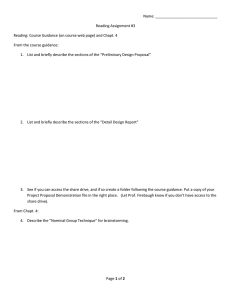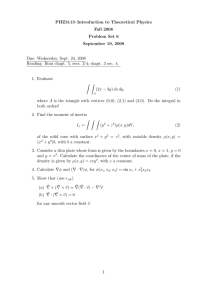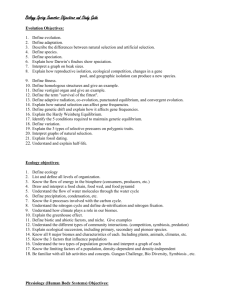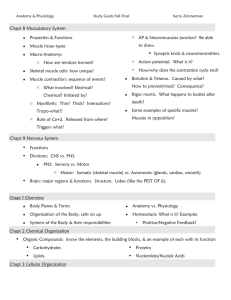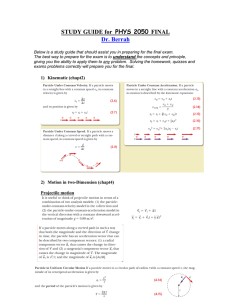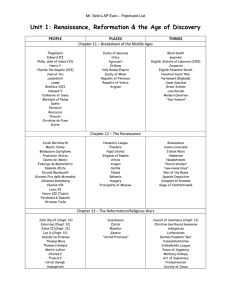NURS 656, Advanced Practice Nursing: Primary Care II Fall, 2014
advertisement
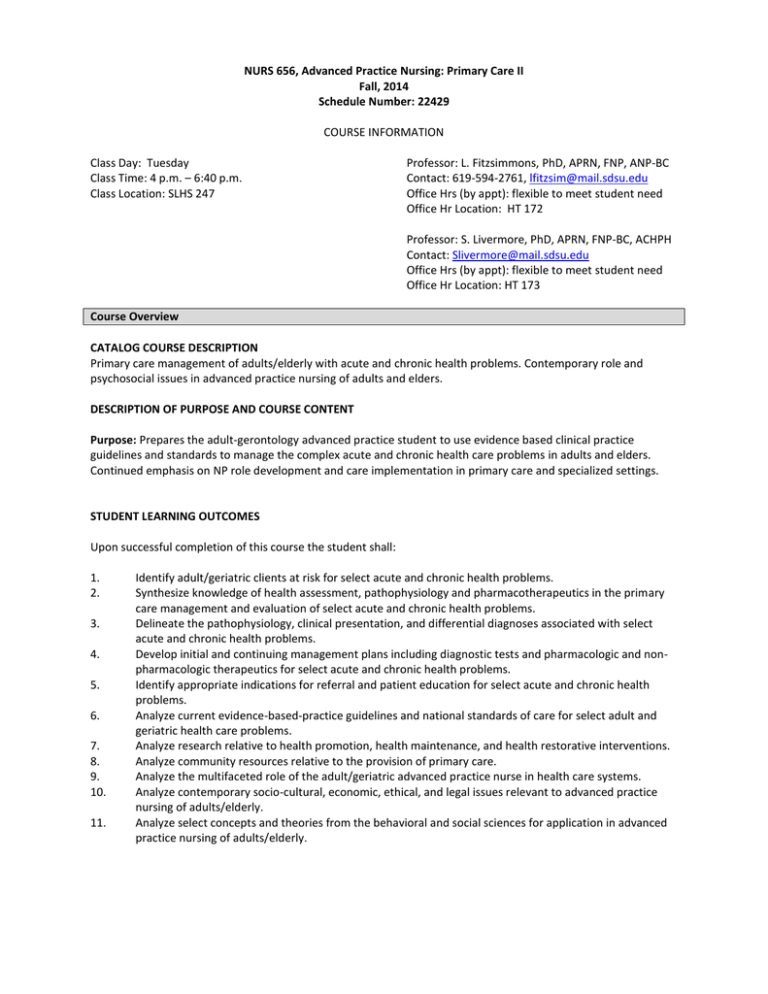
NURS 656, Advanced Practice Nursing: Primary Care II Fall, 2014 Schedule Number: 22429 COURSE INFORMATION Class Day: Tuesday Class Time: 4 p.m. – 6:40 p.m. Class Location: SLHS 247 Professor: L. Fitzsimmons, PhD, APRN, FNP, ANP-BC Contact: 619-594-2761, lfitzsim@mail.sdsu.edu Office Hrs (by appt): flexible to meet student need Office Hr Location: HT 172 Professor: S. Livermore, PhD, APRN, FNP-BC, ACHPH Contact: Slivermore@mail.sdsu.edu Office Hrs (by appt): flexible to meet student need Office Hr Location: HT 173 Course Overview CATALOG COURSE DESCRIPTION Primary care management of adults/elderly with acute and chronic health problems. Contemporary role and psychosocial issues in advanced practice nursing of adults and elders. DESCRIPTION OF PURPOSE AND COURSE CONTENT Purpose: Prepares the adult-gerontology advanced practice student to use evidence based clinical practice guidelines and standards to manage the complex acute and chronic health care problems in adults and elders. Continued emphasis on NP role development and care implementation in primary care and specialized settings. STUDENT LEARNING OUTCOMES Upon successful completion of this course the student shall: 1. 2. 3. 4. 5. 6. 7. 8. 9. 10. 11. Identify adult/geriatric clients at risk for select acute and chronic health problems. Synthesize knowledge of health assessment, pathophysiology and pharmacotherapeutics in the primary care management and evaluation of select acute and chronic health problems. Delineate the pathophysiology, clinical presentation, and differential diagnoses associated with select acute and chronic health problems. Develop initial and continuing management plans including diagnostic tests and pharmacologic and nonpharmacologic therapeutics for select acute and chronic health problems. Identify appropriate indications for referral and patient education for select acute and chronic health problems. Analyze current evidence-based-practice guidelines and national standards of care for select adult and geriatric health care problems. Analyze research relative to health promotion, health maintenance, and health restorative interventions. Analyze community resources relative to the provision of primary care. Analyze the multifaceted role of the adult/geriatric advanced practice nurse in health care systems. Analyze contemporary socio-cultural, economic, ethical, and legal issues relevant to advanced practice nursing of adults/elderly. Analyze select concepts and theories from the behavioral and social sciences for application in advanced practice nursing of adults/elderly. 2 Course Outline & Required Readings: Schedule subject to change Date 8/26 Content Orientation etc., Role Issues Management of Patients with Thyroid Dysfunction, Disease Lorraine Fitzsimmons, PhD, APRN, FNP, ANP-BC 9/2 Advanced EKG Interpretation, 12 Lead Della Burns, MN, APRN, FNP-BC 9/9 Mental Health Issues: Depression & Anxiety in Adults/Elders Ruth Samad, RN, PhD Clinical Psychologist, Private Practice & SDSU Faculty Coding, Reimbursement, Medicare Sarah Livermore, PhD, APRN, FNP-BC, ACHPH Chronic Pain Management, Wound Care Sarah. Livermore, PhD, APRN, FNP-BC, ACHPH Buttaro, chapt 245, 246, Poole, Chapt 40, 41 Reuben, pp. 30-32, 69-74 Buppert, chapt 9, Management of Patients with Prostate Dysfunction, Disease Sue Hadley, PhD, APRN, GNP, ANP-BC Management of Patients with Chest Pain, Cardiac Diagnostics Sue Hudson-Abbott, MS, APRN, CNS, GNP, ANP-BC Cardiology Nurse Practitioner, VA, San Diego EXAM #1 Management of Patients Requiring Anticoagulation, VTE Prevention Beth Palmer, DNP, APRN, AGPCNP, ACCNS-AG Nurse Practitioner, VA, San Diego Management of Patients with Common Geriatric Syndromes Sarah Livermore, PhD, APRN, FNP-BC, ACHPH Buttaro, chapt 147, Reuben, pp. 240-241 Buttaro, chapt 115, 119, 120, 125 Poole, chapt 21, 22 9/16 9/23 9/30 10/7 10/14 10/21 10/28 11/4 Palliative Care Sarah Livermore, PhD, APRN, FNP-BC, ACHPH 11/11 11/18 University Holiday, Veterans Day, No Class Management of Patients with Hepatitis Sue Hadley, PhD, APRN, GNP, ANP-BC Management of Adults & Elders with Neurologic Disorders: ON-LINE Vicki McCalmot, MS, APRN, ANP-BC 11/25 12/2 12/9 12/16 Practice Issues. State and National Advanced Practice Certifications Lorraine Fitzsimmons, PhD, APRN, FNP, ANP-BC Contemporary Issues in Health Care, Research Critiques Lorraine Fitzsimmons, PhD, APRN, FNP, ANP-BC EXAM #2 *EBP Guidelines and research articles will be added Readings* Buppert, chapt 1, 2 Buttaro, chapt 6, DeSani, pp, 194-200 Reuben, pp. 83-84, Poole, chapt 46 EKG Syllabus on BB Buttaro, chapt 117 Buttaro, chapt 15 Reuben, pp. 210-222, 267-275 Poole, chapt 7 Buttaro, chapt 124 Reuben, pp. 22-29 Poole, Chapt 49 Buttaro, chapt 12, 187, Reuben, pp. 58-61, 62-68, Dains, chapt 8 Buttaro, chapt 13 Reuben, pp. 223-230 Buttaro, chapt 135 Buttaro, chapt 37, 187, 193, 195, 199, 200, Reuben, pp. 195-204 Poole, chapt 38, 39, 44 Dains, chapt 12,18 TBA TBA 3 REAL LIFE RELEVANCE Advanced practice students continue to acquire and refine knowledge and skills needed to diagnose and treat acute and chronic health care problems in clinical practice. Content required national certification as an adultgerontology primary care nurse practitioner. RELATION TO OTHER COURSES Required course for students in the APN, NP-CNS specialization. NURS 656 taken concurrently with NURS 657. Enrollment Information PREREQUISITES NURS 654, APN: Primary Care I; NURS 655, APN Practicum: Primary Care I Concurrent: NURS657, APN Practicum: Primary Care II ADD/DROP PROCEDURES Per University policy in the SDSU General Catalog and class schedule Course Materials Course materials (lecture outlines, course documents etc.) are accessible via the course Blackboard site. REQUIRED TEXTS Buttaro, T. et al. (2013). Primary care. A collaborative practice. 4th edition. Elsevier: St. Louis. Buppert, C. (2012). Nurse practitioner's business practice and legal guide. 4th edition. Jones and Bartlett, Boston. Dains, J., et al. (2012). Advanced health assessment and clinical diagnosis in primary care. 4th ed. Mosby: St. Louis. Desani, S. (2009). Clinician's guide to laboratory medicine. Pocket. MD2B. Houston, Texas. Gilbert, D., et al. (2013). The Sanford guide to antimicrobial therapy. Antimicrobial Therapy. VT. Poole, V. et al. (2013). Pharmacotherapeutics for advanced practice. A practical approach. Lippincott: Philadelphia. Reuben, D. et al. (2012). Geriatrics at your fingertips. 14th edition, American Geriatrics Society, New York. Seidel, H., et al. (2011). Mosby's guide to physical examination. 7the edition. Mosby: St. Louis. Current evidence-based practice guidelines, research studies, and risk assessment tools will be required. Course Structure and Conduct This class builds on content presented and discussed in Pharmacology (NURS 658), Advanced Health Assessment (NURS 501), Pathophysiology (NURS 610) and Primary Care I (NURS 654). During class, students will be expected to discuss cases, present homework, write scripts and engage in clinical decision making exercises. Both lecture and discussion formats will be used. Students are expected to prepare for class. Students who are not prepared maybe be counseled and will have their course grades lowered by one interval (example B to B-) Computer Requirements: Students are required to have a computer with internet access, a printer and an active SDSU email account. Students are responsible for checking their email daily and to responding promptly when requested to do so. Course Assessment and Grading Final Course Grades: Final course grades will be determined by achievement in: Examination I 45% Examination II 45% Resume 10% 100% To successfully complete this course, a student must earn an average test grade of C or better. A grade earned on the resume project may not elevate a failing test average. 4 Final Average 93-100% 90-92% 87-89% 83-86% 80-82% 77-79% 73-76% 70-72% 67-69% 63-66% 60-62% 60% Final Course Grade A AB+ B BC+ C (Lowest grade to pass the course) CD+ D DF Please refer to the 2014-2015 SDSU Graduate Bulletin regarding graduate division policies regarding GPA etc. Other Course Policies Class Attendance/Absence: (from the start to the end of class) IS REQUIRED. Students should not make outside commitments that require absence from class. An excused absence will be granted by the course professor for serious reasons only. Students are required to contact the course professor to discuss their absence prior to class. Medical documentation maybe required for illness. Conflicting work schedules are not grounds for an excused absence. An unexcused absence will result in the lowering of your course grade by on one interval (example: A to A-). Two unexcused absences will result in course failure. Students are expected to be on time for class. No provisions will be made for an exam that is missed because of an unexcused absence. An unexcused absence will result in a grade of 0 for the exam. There are no makeup exams for unexcused absences. For an absence to be excused, the student must provide appropriate timely written documentation. If a make-up exam is needed for an excused absence, the exam may differ in format from the original exam (e.g, essay, short answer, oral exam or other test formats maybe given). The date, time, place and composition of the makeup exam will be determined by the course professor. Excessive absences (even if excused) may result in course failure. Please contact the course professor if you are having problems that affect your attendance in lecture. Classroom Etiquette: Electronic devices (computers, iphones, ipads etc.) may only be used to access course materials. These devices may NOT be used to send/receive/check messages or texts during class time. Cell phones should be silenced and text messaging is not permitted during class time. Audio or videotaping of lectures is not permitted. Students with Disabilities: Students who need disability accommodations should provide documentation of their disabilities to Student Disability Services (DSS) (Capulli Center, Suite 3101), and receive authorization for academic accommodations. After accommodations have been authorized by DSS, students are responsible for notifying faculty in advance of the need for accommodations. This can be best accomplished by making an appointment to meet privately with the faculty member early in the semester, or as soon as possible in the event that a disability is diagnosed during the course of the semester. Other: "Some courses may require students to participate in field trips, research or studies that include course work that will be performed off-campus. Participation in such activities may result in accidents or personal injury. Students participating in off-campus are aware of these risks, and agree to hold harmless San Diego State University, the State of California, the Trustees of the California State University and Colleges and its officers, 5 employees and agents against all claims, demands, suits, judgments, expenses and costs of any kind on account of their participation in the activities. Students using their own vehicles to transport other students to such activities should have current automobile insurance. "
